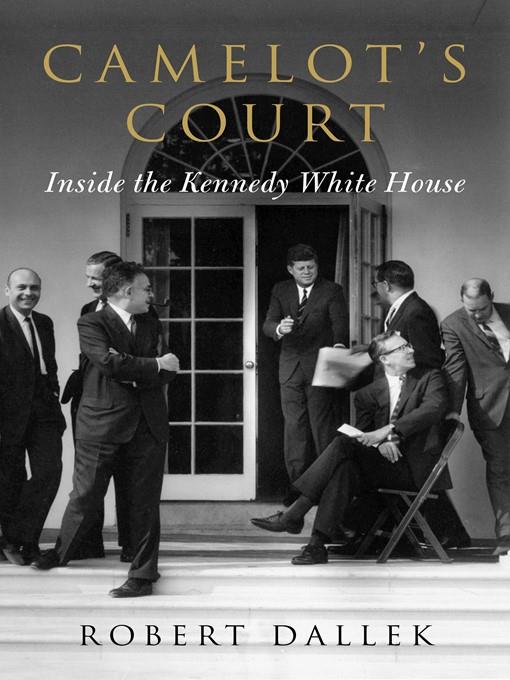
Camelot's Court
Inside the Kennedy White House
کتاب های مرتبط
- اطلاعات
- نقد و بررسی
- دیدگاه کاربران
نقد و بررسی

August 5, 2013
Non-experts are likely to have a hard time assessing what significant new facts are revealed in this meticulous but well-trod account of J.F.K.’s tenure in the White House. Dallek (An Unfinished Life: John F. Kennedy, 1917–1963) walks the reader through the basics: Joseph Kennedy Sr.’s ambitions; his congressional years; and his years in the White House dealing with the Soviet Union, Vietnam, and Cuba. Kennedy’s relationship with his advisers, dubbed “the best and the brightest” (Robert McNamara, Ted Sorenson, McGeorge Bundy, et al.), has also been thoroughly described elsewhere. The conclusions Dallek reaches are less than profound or original: “The affection for generated by his persona and the tragedy of his assassination have encouraged positive assessments of his leadership.” And despite the book’s length, there are important omissions: Dallek’s discussion of Kennedy’s sexual appetites in the first chapter relies heavily on the 2012 tell-all memoir of intern Mimi Alford, but readers are given no basis against which to assess the reliability of her account. Dallek may well have strong reasons for relying on her, but, inexplicably, he doesn’t tell us what they are.

September 15, 2013
Dallek (An Unfinished Life: John F. Kennedy, 1917-1963) adds new insights beyond those in his excellent 2003 biography of JFK. Here is a compelling view of the president's often frustrating interactions with cabinet members and high-placed government officials. Kennedy encouraged this "ministry of talent" to speak their minds, but their advice was often ignored as JFK gained the confidence to rely on his own instincts, learning that the best-intentioned advisers could present bad options. Dallek discusses Kennedy's major challenges: U.S.-Soviet relations, nuclear disarmament, Castro's Cuba, Vietnam, and to a lesser extent, civil rights. His chief adviser and confidant was Robert F. Kennedy, who is depicted in detail, as are many others whom JFK either relied upon or mistrusted (e.g., figures from the CIA or military). As expected, Dallek focuses on the brinksmanship of the Cuban Missile Crisis. He weighs whether Vietnam was an important or peripheral Cold War front. Dallek concludes that Kennedy realized that since he could not control events in nearby Cuba, he would certainly not be able to do so in faraway Vietnam; he would likely have found a way out of Vietnam had he served a second term. VERDICT Readers who keep up with the body of work on JFK will appreciate Dallek's page-turning style. Historians will value his excellent scholarship as he, in effect, revisits David Halberstam's classic, The Best and the Brightest.--Karl Helicher, Upper Merion Twp. Lib., King of Prussia, PA
Copyright 2013 Library Journal, LLC Used with permission.

























دیدگاه کاربران